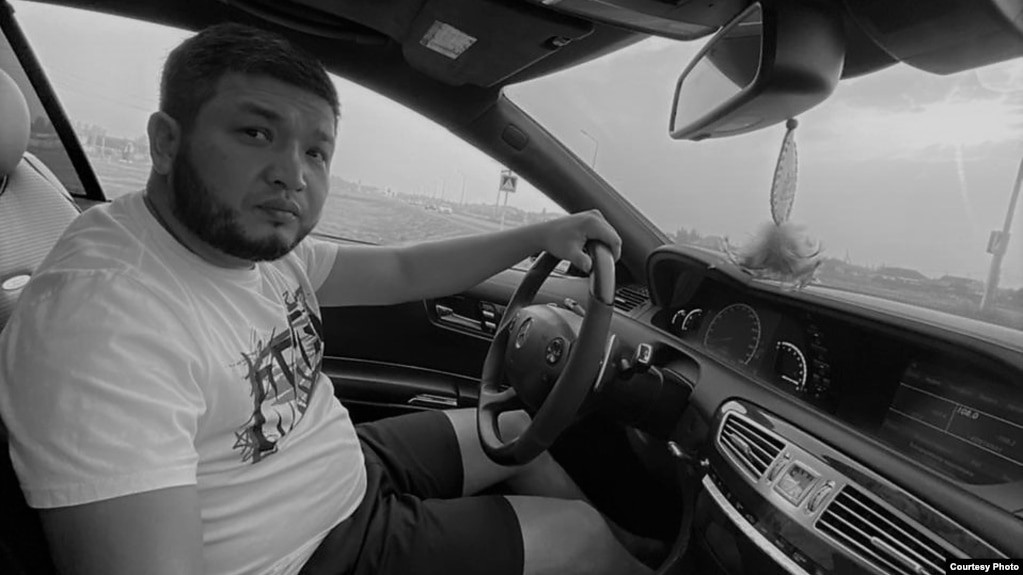Policemen convicted of torture in Kazakhstan
In a verdict that represents an important step forward for human rights, four officers were given sentences ranging from two to seven years in prison. They were accused of torturing two prisoners, one of whom died as a result of the harassment.
Astana (AsiaNews) - The Special Court for Serious Crimes in the city of Šymkent in Kazakhstan made a rather resounding decision for the country's traditions on 30 June, sentencing four members of the police force to two to seven years in prison.
They were accused of torturing two prisoners, one of whom died as a result of the harassment. Both the convicts and the lawyers of the injured parties, however, challenged the sentence, stating that they would appeal against it.
On 8 December 2021, 30-year-old Nurbolat Žumabaev and his slightly younger friend Sergey Petrov were arrested and taken to the Šymkent police department on suspicion of participating in the theft of a very expensive car. A few hours later, Žumabaev died in the building itself.
At first the police stated that he "fell ill during interrogation, and passed away before the ambulance arrived", but relatives later reported that they found many signs of violence on his body.
On 11 December, Eraly Žumakhanbetov, then director of the department, admitted that violence had been used on the suspect, confirming the relatives' version that he had been beaten to death. Petrov also stated that he had been subjected to violence, and the four policemen were sued for crimes of torture, which aroused strong emotions throughout Kazakh society.
Judge Svetlana Šynalieva finally passed the sentence, one and a half years after the facts were analysed by the special court. Daulet Ajmešov was sentenced to seven years, Ualikhan Žanibekov to seven years, Dinmukhammed Isaev to three and a half years and Ališer Otkirov to two years, partly accepting the prosecution's demands, which ranged from three to nine years.
Sergey Petrov, a survivor of torture, stated that he would never forgive the defendants and asked the judge to impose the heaviest possible sentence on them. The first three convicts will serve their sentences in a medium-security prison, deprived of the rank of corporal, while Otkirov, who was also reduced to the lowest level, will be locked up in a simple security prison.
In addition, they will not be able to exercise leadership functions in any law enforcement agency for another three years; part of the sentence has already been served after the arrest, with preventive and home detention, which will reduce the sentences by almost two years.
At the trial, the prosecutor recalled the facts, from when the policemen had stopped the two suspects in a bar, then beaten and tortured them for almost an hour at the precinct, without any entry in the police arrest register.
Ajmešov was the first to turn on Žumabaev and Petrov, punching and kicking them and leaving them on the freezing floor of a cell without heating while it was almost -30 degrees. They were then taken to different rooms, and in agreement with the other policemen, Ajmešov remained alone with Žumabaev, who attacked him with a fatal blow to the chest .
In his testimony, the accused explained that the two had refused to provide the pin-codes of their mobile phones, "and we were forced to use truncheons" to find evidence of their crime.
According to the autopsy ordered by the judge, which the relatives also released to the press, the death may also have been caused by 'electroshock', with signs of 'internal bleeding in the liver' and 'trauma to the stomach'.
The deceased's brother, and Petrov himself, were also awarded by the court compensation of 1 million tenge (about EUR 2,000) by each of the convicts for moral damage, and 5 million (about EUR 10,000) by Ajmešov and Žanibekov, but no further sums by the state.
The plaintiffs also called for the indictment of the now former police district director, General Žumakhanbetov, for 'negligence in the performance of his duties', but the judge disregarded the request.
Nurbolat's body is now resting in the cemetery of his native Kostanae, and Kazakh and international humanitarian organisations are calling on the government in Astana to take serious measures against torture and violence in prisons and investigation institutions, where even the most basic rights of suspects are not recognised.







.png)










